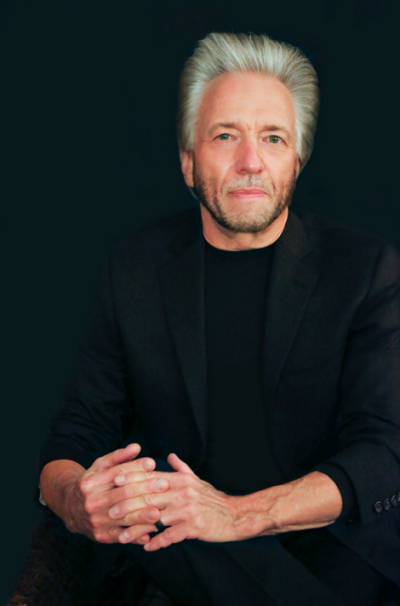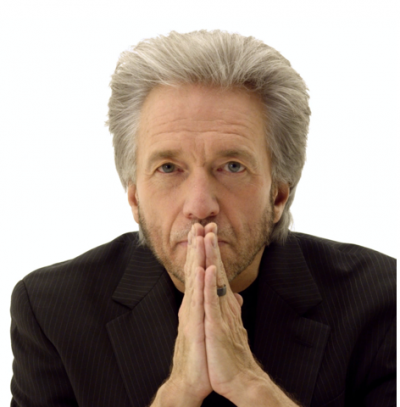

 Oh, a non-family member. Wow, Phil, when I had the invitation to be with you on this program, and I saw the question, there’s so many people in my life that have done so many very kind things over the years that have had such a huge impact. And I went back and I think probably one of the most influential... and there’s a little backstory to this.
Oh, a non-family member. Wow, Phil, when I had the invitation to be with you on this program, and I saw the question, there’s so many people in my life that have done so many very kind things over the years that have had such a huge impact. And I went back and I think probably one of the most influential... and there’s a little backstory to this.
I think many people in our community know a little bit about my history. I am the product of a very unhealthy, dysfunctional alcoholic family. My father was the abuser for my mom and a younger brother and I, and he left when I was 10. And we struggled, our family really struggled. My mom had left the workplace and had to re-educate herself to go back in; this was after the end of World War II in the 1950s.
And we struggled for a long time. Money was always an issue. We lived in government-subsidized housing in Northern Missouri. And I can say this now, I was not fully truthful about my age when I applied for a union job at a copper mill in Northern Missouri. Because we needed the money and that was a shift that would allow me to work after school. So school was out usually at three o’clock. And the shift, it was a 12-hour shift, it was 4:00pm to 4:00am. And I lied about my age by only a year and they declined. They didn’t want to hire me. They said you don’t have the experience.
I was very persistent. I went down and talked to... I physically walked into the shop at that time, you could do that. And I talked to the union rep and I talked to the supervisor. And I went down there every week and said, "Do you have an opening, has anybody quit? Do you need somebody to fill in?"
And I think it may have been purely out of just so I would stop asking that they finally... one of the supervisors came and he said, "You know, I think you would be a good fit in our crew." And he gave me a union job. And so this would have been 1971. And at that time union wages, I think it was maybe around $14 or $15 an hour. And that was a lot of money back in the 1970s.
And I went to work as an unskilled labor in a copper mill where we took raw copper and put it through a series, they’re called dies, D-I-E-S, drawing that copper down into finer and finer strands that eventually would become used as telephone wire; AT & T was one of our biggest clients, telephone cables. They were called extrusion machines, and I worked on the extrusion machines at night and then I went to school during the day.
And I remember, Phil, this is why it was so important. The very first paycheck, this is in the days where they would give you a physical paycheck. We would all line up at the end of every week, outside of a time clock where you’d punch your card in and you’d punch your card out when you would leave, and we received the physical paycheck. And my supervisor, he walked over to me and he handed me this paycheck and he looked me in the eye and he said, "A man’s wages for a man’s work." Now, this is a different era, very different than the world we live in today. And I certainly didn’t have the benefit of knowing then everything that I know now. And it meant so much to me to have in my hand, something that I could take back to my family, that was significant, that would help with the bills and the food and the rent and everything that was coming in.
That was important, but even beyond that, Phil, what it did is it instilled in me a sense that I was capable of achieving something that other people had told me that I could not. Everybody told me and said, "Gregg, you’re never going to make it in a factory. You’re never going to make it in the union. The work’s too hard." You know, OSHA was there, Occupational Safety Health Administration, and they had regulations, but this copper mill, it was over 115 degrees every day; we’d go into work and we were covered with overalls and ear protection and eye protection and head protection, and steel-toed shoes to make it even warmer. And people just said, it’s not going to work. And I stayed at that job until I went to college. And that was what made the money for me to begin my college career, my college degree.
So it was that first paycheck, Phil, the act of kindness that you’re talking about is there was a man that trusted me, even though I was not technically qualified. He saw something in me and he believed in me and he gave me a chance. And that chance set into motion a pattern of experiences in my life where I had the confidence to approach an opportunity with a sense of success rather than a fear of failure. And for that act of kindness, I will always be indebted.
And this is the act that comes to me immediately, that probably had the most profound effect on a long-term global effect in my life. Many other acts of kindness have happened since that time and in many different ways, but this is the one that really came to mind when I was asked this question.
 Gregg Braden, a 5-time New York Times bestselling author, scientist, and international educator, is renowned as a pioneer in the emerging paradigm based in science, social policy, and human potential.
Gregg Braden, a 5-time New York Times bestselling author, scientist, and international educator, is renowned as a pioneer in the emerging paradigm based in science, social policy, and human potential.
From 1979 to 1991, Gregg worked as a problem solver during times of crisis for Fortune 500 companies, including Cisco Systems, where he became the first Technical Operations Manager in 1991. He continues problem-solving today as his work reveals deep insights into our origin, our potential, and how these understandings inform the policies underlying everyday life and the emerging world. To date, his research has led to 15 film credits and 12 award-winning books, now published in over 40 languages.
Gregg is the proud recipient of numerous awards, including the New Thought Walden Award and the ILLUMINATE Award for Conscious Visionaries. The United Kingdom’s Watkins Journal lists Gregg among the top 100 of “the world’s most spiritually influential living people” for the seventh consecutive year, and he was a nominee for the prestigious Templeton Award, established to honor “outstanding individuals who have devoted their talents to expanding our vision of human purpose and ultimate reality.”
Gregg is actively involved in visionary organizations and think tanks including the American Association for the Advancement of Science (AAAS), The Evolutionary Leadership Organization, The Laszlo Institute of New Paradigm Research, and The Arlington Institute. He has presented his discoveries in over 30 countries on six continents and has been invited to speak to The United Nations, Fortune 500 companies, and the U.S. military.
Catalyst is produced by The Shift Network to feature inspiring stories and provide information to help shift consciousness and take practical action. To receive Catalyst twice a month, sign up here.
This article appears in: 2021 Catalyst, Issue 15 - The Future of Plant Medicine Summit